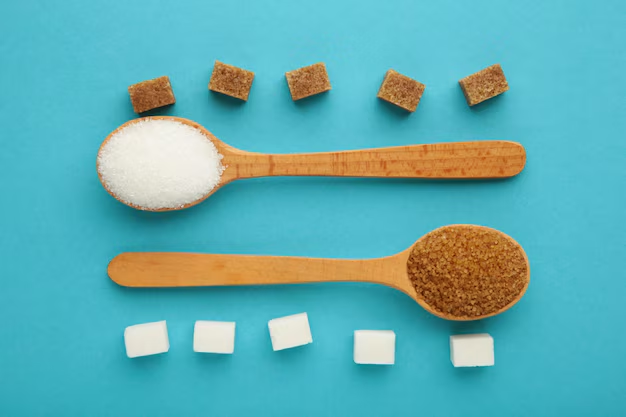Your Guide to How Much Sugar Can I Have As a Diabetic
What You Get:
Free Guide
Free, helpful information about Diabetes FAQ and related How Much Sugar Can I Have As a Diabetic topics.
Helpful Information
Get clear and easy-to-understand details about How Much Sugar Can I Have As a Diabetic topics and resources.
Personalized Offers
Answer a few optional questions to receive offers or information related to Diabetes FAQ. The survey is optional and not required to access your free guide.
Managing Sugar Intake: A Guide for Diabetics
Understanding how much sugar you can safely consume as a diabetic is crucial for maintaining a healthy lifestyle. While many people think of diabetes and sugar as problematic partners, the truth is more nuanced. Knowing how to manage your sugar intake can help you optimize your health without completely sacrificing the sweetness of life.
Finding Your Balance
For people with diabetes, balance is key. While it's essential to limit added sugars, it doesn’t mean you have to remove all sugars from your diet. The American Diabetes Association doesn't set a strict limit for sugar consumption; rather, it recommends focusing on your overall carbohydrate intake because all carbohydrates turn into sugar in the body, which directly impacts blood glucose levels.
Tips to Manage Sugar:
- Count Your Carbs: Use carbohydrate counting as a method to manage your blood sugar levels. Consult with a healthcare provider or a dietitian to determine your daily carb needs.
- Read Labels Carefully: Check food labels to understand how much added sugar you are consuming.
- Choose Natural Sugars: Opt for fruits and other foods with natural sugars, as they also provide essential nutrients and fiber, slowing sugar absorption.
- Monitor Blood Sugar Levels: Regular monitoring will help you see how various foods and sugar levels impact you personally.
The Role of Whole Foods
Focusing on whole foods—like vegetables, whole grains, and fresh fruits—can make it easier to satisfy your sweet tooth while keeping your sugar intake in balance. These foods have high fiber content which aids in gradually releasing sugar into the bloodstream.
Sugar Substitutes: A Viable Option?
Artificial sweeteners or natural sugar substitutes can be handy. Options like stevia, erythritol, and others can allow you to enjoy sweet tastes without significantly affecting blood sugar levels. Still, it's worth noting that some people may experience digestive issues with certain sugar alcohols or substitutes, so always pay attention to how your body reacts.
Beyond Diet: Financial and Educational Support
Managing diabetes often goes beyond just dietary changes. Healthcare costs can quickly add up, making financial literacy and planning important.
- Government Aid Programs: Programs like Medicaid or Medicare may offer assistance for medications and diabetes management supplies.
- Financial Assistance: Non-profits and government programs can help cover costs for essential medications and devices.
- Educational Grants: Educational resources and programs are often available to help understand diabetes management better.
Understanding the financial aspect can be overwhelming, but taking proactive steps to educate yourself can lead to better management of your diabetes, less stress about costs, and a healthier life overall.
Financial Assistance and Resources for Diabetics
- 💊 Prescription Assistance Programs: Help with costs for diabetes medications.
- 🏥 Medicare/Medicaid: Government programs offering substantial medical coverage.
- 📚 Diabetes Self-Management Education (DSME): Offers skills to cope and manage diabetes effectively.
- 💼 Non-profit Organizations: Many, like American Diabetes Association, offer various resources, including financial guidance.
- 🎓 Educational Scholarships: Scholarships for diabetes education to better manage and understand the disease.
- 💳 Credit Counseling Services: Aid in managing medical debt related to diabetes care.
Exploring these options can alleviate financial burdens, enabling you to focus on effective diabetes management. Remember, it's not just about limiting sugar—it's about holistic well-being.
What You Get:
Free Diabetes FAQ Guide
Free, helpful information about How Much Sugar Can I Have As a Diabetic and related resources.

Helpful Information
Get clear, easy-to-understand details about How Much Sugar Can I Have As a Diabetic topics.

Optional Personalized Offers
Answer a few optional questions to see offers or information related to Diabetes FAQ. Participation is not required to get your free guide.


